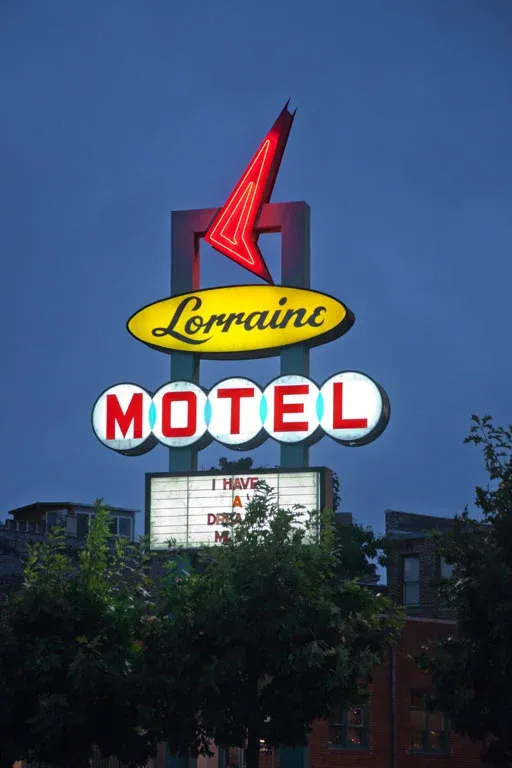National Civil Rights Museum Op-Ed
Dr. Russ Wigginton, President
Every February, Black History Month serves as a time to reflect on the resilience, achievements, and ongoing struggles of African Americans in the United States. Few places embody this mission more profoundly than the National Civil Rights Museum in Memphis, Tennessee. Situated at the historic Lorraine Motel, where Dr. Martin Luther King Jr. was assassinated, the museum stands as both a solemn memorial and an educational beacon, ensuring that the past informs the present and shapes the future.
A Museum Rooted in Education and Outreach
The National Civil Rights Museum is more than a collection of exhibits; it is a living archive of the American civil rights movement. Visitors can walk through interactive displays that detail pivotal moments in Black history, from the transatlantic slave trade to the landmark Brown v. Board of Education ruling and the Montgomery Bus Boycott. The museum’s commitment to preserving history extends far beyond its walls, reaching classrooms, communities, and individuals eager to learn and engage.
Ongoing Educational Programs
Throughout Black History Month and beyond, the museum offers a variety of educational initiatives designed to inspire and inform. One standout program is the Book Talk Series, which features authors discussing works that explore themes of racial justice, Black resilience, and civil rights history. These discussions encourage deep reflection and provide an opportunity for the community to engage with influential voices in the field.
The museum’s School Outreach Program connects educators and students with tailored curriculum materials, virtual field trips, and interactive workshops that bring civil rights history to life. Through engaging storytelling and dynamic lessons, students gain a deeper understanding of the struggles and triumphs that have shaped American society.
Another key initiative is the Staff Speakers Bureau, where museum experts visit schools, organizations, and businesses to share insights on civil rights history and contemporary social justice issues. These presentations help bridge the gap between past and present, illustrating how historical movements inform today’s fight for equality.
Book Talk Series and Catalyst for Change Speaker Series: Sparking Dialogue and Action
Examples of the museum’s most impactful ongoing programs are its Book Talk Series and the Catalyst for Change Speaker Series, platforms for meaningful dialogue on pressing social issues. These series bring together activists, scholars, and community leaders to discuss racial equity, voting rights, economic justice, and other critical topics. By fostering open conversations and actionable solutions, the museum ensures that Black History Month is not just about remembrance but about inspiring change.
A Community-Focused Approach
Black History Month at the National Civil Rights Museum is not just about looking back; it is about empowering communities to take action. Programs focused on youth engagement encourage young people to become activists in their own right. Workshops on economic empowerment and racial justice initiatives provide tangible ways for community members to get involved. The museum’s outreach efforts ensure that the lessons of the civil rights movement remain relevant and actionable for all generations.
Beyond its educational mission, the museum serves as a gathering space for healing and unity. It acknowledges the pain of the past while fostering hope for the future. In a time when the fight for racial justice continues, the museum’s role in promoting awareness and dialogue is more critical than ever.
Black History Month at the National Civil Rights Museum is a powerful reminder that history is not static—it is a force that shapes our present and future. Through ongoing educational programs like book talks, school outreach, the Staff Speakers Bureau, and the Catalyst for Change Series, the museum continues to inform, engage, and inspire. For those seeking to deepen their understanding and commitment to racial equality, there is no better place to reflect, learn, and be moved to action.
